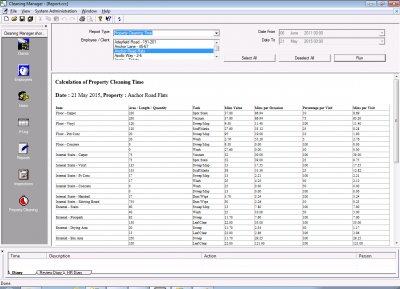
You already know that a computerised electronic rota is quicker, easier and far more reliable than an old-style paper-based system – otherwise you wouldn’t be reading this. But you might not be aware that there are a number of spin-off benefits to our staff scheduling software that have a positive effect on other areas of your business. Here are just a few.
Take your office with you 24/7
Life, and work, doesn’t stop just because you are away from your desk. So we have developed versions of our software that enable you to access your staff rotas and other management tools, wherever you are and whenever you want. Our multi-platform, browser-based web solutions provide a cut-down version of our staff scheduling, attendance and other software for any type of mobile device, including smartphones. And for those who require full functionality while working on the move, we have powerful Android-based rota and timesheet solutions designed specifically for tablet computers.
Allocate staff according to budget
Staffing is probably one of your biggest costs, so you don’t want to waste precious resources by having the wrong balance of employees on your rota. With our staff scheduling software, you can set your budget and create a rota accordingly, so you are always on top of staffing levels – and costs.
Store a rolling rota
Save valuable time by storing employees’ regular hours on a rolling rota for as many weeks as you like. There’s no need to keep re-inputting data and staff can be sure they get the shifts they want.
Choose your clocking device…
Our software supports virtually all attendance devices and media, so all you have to do is find the right clocking technology for your business. From mobile phones and tablets to NFC, handscanners and biometric, our expert team can guide you through all the options and help you identify your perfect match.
…and payroll system
However simple or complex your clocking system and pay rates, our software has the functionality to import the data into your payroll application. Most major payroll systems are supported, including Sage, IRIS and Access.
To find out more about our staff scheduling software or any of the points above, request a callback from one of our team or contact us via phone or e-mail.












